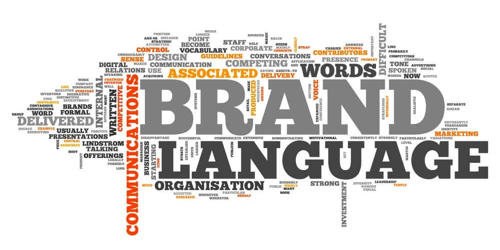Language is one of the most important definers of any brand. Brand language refers to the words, and even images, a brand uses to define its purpose, brand tone, or reference its products. The language you choose, the language you don’t choose and the language you choose to replace are a reflection, and in some sense a definition, of brand priorities.
Brand language is the body of words, phrases, and terms that an organization uses to describe its purpose or in reference to its products. When referring to brand language, there are many techniques and strategies out there. Some are more obvious than others, but let’s start with the basics. It is used in marketing to help consumers connect specific words or ideas to specific companies or products. It is the body of terms, phrases, and words that a company uses to describe both themselves and their products. When developing a brand language, word choice and tone are the two fundamental components. It is about more than the throwaway phrases and convenient adjectives. It is a marketing strategy used to help consumers identify and strike connections between specific words and a given product.
Word choice is the vocabulary that is used in marketing or advertising, while tone refers to the attitude of the advertisement. Having a good understanding of your target audience is therefore key to deciding what rhetorical style to adopt. Obviously language choices ought to be in accordance with any locale-specific disparities. The tone is not limited to language, it can also be incorporated through visual elements as well as delivery. Take for example the recent proliferation of ‘artisanal’, ‘handcrafted’, ‘natural’, and ‘home-made’ among brands. Creating a strong brand language and identity will not only build awareness for your brand, but it will also differentiate it from your competitors and similar products.
Brand language is a part of verbal brand identity, includes the naming of both corporations and the products they sell as well as taglines, idiosyncratic wording choices, and tone. This lack of uniqueness leads to skepticism in the mind of the customer. This is why all growing businesses need to develop a body of words, phrases, and terms that truly describe their brand’s purpose, values, and products. Another benefit of developing a brand language is the ability for a corporation or product to be recognizable across international borders, while other advertising codes can be misinterpreted, words can be translated to ensure brand unity. Spend time analyzing what language your competitors are using. Your choice of words should explain why your brand exists, not what it does or how you do it.
















